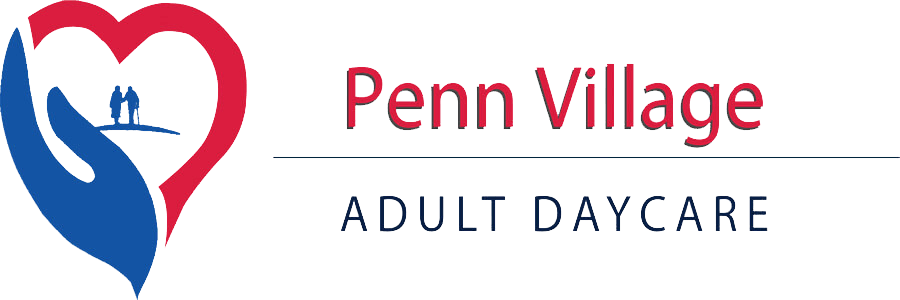
When most people think about adult daycare, they imagine activities, meals, and social time — but what often goes unnoticed is the quiet vigilance behind it all. At Penn Village, our staff doesn’t just serve meals or plan events. We observe, listen, and act when something feels off. In many cases, that attentiveness becomes the first line of defense against serious health or emotional decline.
The First to Notice When Something Changes
Our team spends hours each day with clients — more consistent contact than most families, doctors, or home health aides can provide. That means we’re often the first to notice subtle changes: a loss of appetite, new confusion, emotional withdrawal, or physical instability. Those early signs can point to medication issues, infections, or mental health concerns that need immediate attention.
We don’t diagnose — we coordinate. When we see a concern, we call caregivers, physicians, or home health agencies right away to make sure each client receives the support they need.
Meals, Mood, and Mental Health
It’s amazing how much information a lunch table can reveal. Through our senior meal program, staff members often notice when someone’s eating habits shift. Maybe a client stops finishing their plate, or their usual chatter goes quiet. These small details sometimes point to larger issues — depression, medication side effects, or early cognitive decline. Because our staff sees clients daily, those patterns don’t go unnoticed.
Our daily activities program helps keep minds active and spirits lifted, but when extra support is needed, we step in with empathy and action.
Responding to Emergencies with Care
There are moments when quick observation makes all the difference. One of our clients experienced a seizure at the center — and because staff reacted immediately, they received medical help in minutes and made a full recovery. Another client struggling with mental health challenges needed medication coordination; our team helped contact their doctor and caregiver to restore stability before things worsened.
This is what early intervention looks like in real life: prevention through presence.
Working Hand in Hand with Home Health Aides
We collaborate closely with home health aides and families to share updates and ensure continuity of care. Sometimes, that means addressing neglect or advocating for better support. We take that responsibility seriously — because adult daycare is more than a daytime solution; it’s a safety net.
To understand how this relationship works, read our post on how home health aides can unintentionally isolate clients and how coordination can restore balance.
Seeing the Whole Person, Every Day
Whether it’s transportation staff greeting clients at the door or caregivers noticing mood shifts during group activities, every member of our team plays a role in emotional and physical health. It’s a full-circle model of care that keeps people seen, safe, and supported.
That holistic awareness — meals, mood, movement, and connection — is why many families trust Penn Village as their long-term care partner. It’s also how we’re redefining what adult daycare really means. For a deeper look at that philosophy, see Breaking the Stigma Around Adult Daycare or Life After a Nursing Home: How Adult Daycare Bridges the Gap Between Rehab and Home.
Our Commitment to Early Intervention
At Penn Village, we believe awareness is the most powerful form of prevention. From nutrition to transportation, every service is built to keep clients healthy, connected, and emotionally stable.
If you’re seeking a care environment where your loved one will be both watched over and genuinely known, reach out to us today. We’ll help you create a schedule that supports both safety and independence — because early intervention starts with showing up.
